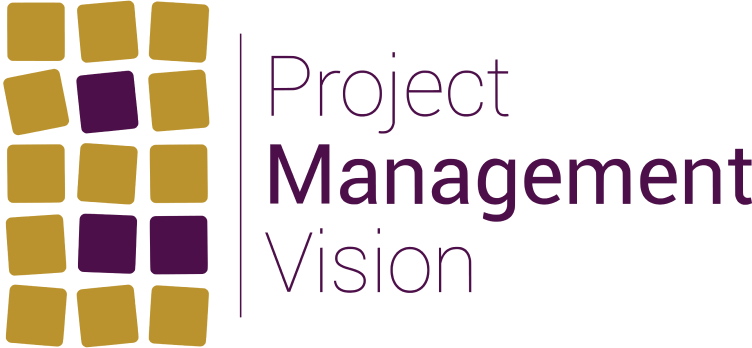Upskilling to Match Emergence of New Global Industry
Upskilling to Match Emergence of New Global Industry
Apr 05, 2022

In 2021, the World Economic Forum (WEF) warned of a major disruption in the labour markets of 15 developed and emerging countries that would lead to a net loss of over 5 million jobs and the emergence of millions of new jobs. COVID-19 is already seriously affecting the labour markets.
Disruption have been experienced by many industries including, mining and mineral processing, airlines, retail, hospitality, healthcare, education, construction, and technology. Year 2020 and 2021 were unpredictable due to COVID. Year 2022 is turning out to be uncertain due to:
- Russia’s aggression on Ukraine’s territory is causing havoc with oil price. NATO and European union are ineffective; there is no signs of early ceasefire insight.
- Stock market and housing markets have soared in Australia and USA. This has caused inflation to touch 7% in USA and nearly 4% in Australia. Federal Reserve has started to lift interbank interest rates. RBA would increase interest rates May 2022 federal election.
- Unemployment rates are its lowest level. Severe shortage of skilled people is being experienced in USA and Australia, it is likely lead to higher wages and higher migration next two years.
Morgan Stanley Australia Research team expects the Australian economy to recover quickly, with easing restrictions being met with strong demand from both consumers and corporates. Essential services like healthcare, energy and natural resources, water, and emergency services will continue to be in demand, although the business models for these industries are likely to change.
1. Upskilling and reskilling – a major priority now
1.1. A severe shortage of skilled people
Australian industry is facing a frightening workforce crisis, including a severe shortage of skilled, qualified nurses, doctors, electricians, and welders
1.2. Industry training Initiatives
Australian industry is not taking this skills shortage lying down. Industry is quickly coming to realise that they cannot continue to rely on Government to solve the problem. There must be a ‘pull’ strategy that engages students through close collaboration between schools and industry. Most engineering graduates coming out Australian universities in 2021, have been placed with high salary.
1.3. Innovative technological solutions
Australian industry is also developing and investing in cutting-edge technology to help ameliorate looming skills shortages. Automation, robotics, and collaborative robots (also known as cobots) are changing the way the service and manufacturing industries work. According to a recent report by commissioned by Google, automation has the power to deliver a $2.2 trillion boost to Australia’s national income by 2030 from productivity gains. This includes $1 trillion boost from accelerating the rate of automation and a $1.2 trillion boost from transitioning Australia’s workforce to higher skilled occupations.
Therefore, to minimise emerging unfavourable social and economic impact, reskilling and upskilling of the workforce would become a top priority of many companies. The education and training systems will need to go through a major shake-up to help the workforce quickly reskill and upskill incorporating virtual solutions. Human-centric technology adoption will become important to ensure communication and knowledge streams remain existent.
2. Acceleration of Digitalisation
Top business leaders agree the organisation must be continually prepared to change, take calculated risks, and be prepared to fail fast, or their business is likely to get disrupted. Therefore, accelerating digital transformation journeys would become a top priority for many companies to ensure business continuity, improve productivity and launch new business models to remain competitive.
3. On-demand workforce
In this era of chronic skills shortages, rapid automation, and digital transformation, companies are confronting a growing talent problem, one that has the potential to become a strategic bottleneck. How can they find people with the right skills to do the right work at just the right time? The half-life of skills is shrinking fast, and many jobs now come and go in a matter of years. Not only that, but major demographic changes are under way: Baby Boomers are aging out of the workforce, and Millennials and Gen Z are taking over, bringing with them very different priorities about who should do what work—and where, when, and how it should get done.
4. The emergence of ‘hybrid workplace’
The current remote working arrangements is becoming permanently shift working patterns, redefining work life and personal life boundaries.
Workplaces are becoming collaboration hubs to achieve common objectives, compared to just providing a place for people to work. Unnecessary overhead costs such as travel will be cut back, leaving no option but to enforce virtual interactions replacing physical face-to-face meetings.
5. New mindsets will drive future success
As technology-enabled transformation is imperative, new mindsets for humans will be the driver to see a successful implementation to propel businesses forward. Cultural change will become one of the most important drivers of success for companies in post-COVID-19 era. The ground rules, beliefs, and assumptions that drive culture will require rethinking with a new set of mindsets driving employee and PMV business success.
PMV has initiated a series of projects aimed at exploring how PMV engineering and training business will be adjusting to this new normal, how digitisation and “hybrid online model” will come to life, and how PMV would adapt to new forms of continuity risks today and in the future.
Appetite for PMV online engineering and training services, is increasing, though the hands-on training is best delivered and assessed face to face.
Upskilling at PMV
PMV offers several courses that can be undertaken to upskill with technical skills that are now necessary to have in this new global market, some relevant courses include:
This training is suitable for electrician, electrical maintenance personnel and design engineers and those who need to familiarise themselves with programmable controller and automation technologies used in building, construction, and industrial automation.
This training is aimed at those participants who and are keen on learning and gaining electrical equipment, instrumentation and control systems and hazardous area skills at the next level of complexity. The course creates pathway to become a Technical Authority and Team Leader responsible for ensuring compliance of EEHA at site, to local regulations and latest AS/NZS standards.
This training is aimed at those participants who and are keen on learning and gaining industrial electronics, instrumentation, and control systems at the next level of complexity. This course is for anyone involved in the ‘supervision and compliance’ side of industrial electronics, instrumentation and control system work, i.e. design, equipment and installation specification, planning and managing industrial electronics and control projects, auditing or inspection.
The course creates pathway to become a Technical Authority and Team Leader responsible for ensuring compliance to local regulations and latest AS/NZS standards.
PMV is the only Registered Training Organisation (RTO) in Australia currently delivering this course.
For more information about PMV courses, visit our website or contact the office
Recent Post
Mar 14, 2024
